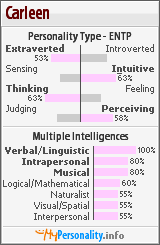
For anyone who doesn't already know, today marks the first day of the month of Ramadan for the Muslims of the world. For the next 29 or 30 days, depending on the lunar calendar, from the time one can distinguish a black thread from a white just before sunrise until the sun begins to dip over the horizon at sunset, Muslims on every continent around the globe will (well, at least we're supposed to) abstain from the following things:
- drinking of any kind -- yes, peeps, that includes water
- eating
- smoking
- sex
- swearing, name calling, and bad behavior in general
- war -- unless attacked and must act defensively
Ramadan comes in the 9th month of the Islamic calendar, which is lunar. This means that over a lifetime, Muslims will fast during every season of the year -- when the days are long and hot in the summer and when they are short and cool in the winter. It begins with the sighting of the new moon that marks the beginning of a new month and ends when the lunar cycle is complete and the next new moon comes.
“Sawm” is one of the five pillars upon which the faith of Islam is built. From puberty onward, all able-bodied Muslims are expected to fast every day, from dawn to dusk. Fasting is not meant to be a hardship, however, so there are exceptions made for
- people who must take medication on a regular schedule
- pregnant, nursing, or menstruating women
- women who are still bleeding after childbirth, even if they are not nursing
- children
- the ill
- travelers
Every year when Ramadan rolls around, especially if it happens to fall in the hot summer months, people will ask me why Muslims torture themselves this way. They seem especially shocked to learn that we continue on with the day's business, go to work or school, and somehow manage to survive without even a drink of water for sometimes 13 to 14 hours a day. So why do we do it? Let me count the ways . . .
First, fasting is meant to provide a means by which a human being can improve his or her moral and spiritual character. It helps to develop and strengthen self-restraint, self-purification, remembrance of God, compassion, the spirit of caring and sharing, the love of humanity and the love of God. Fasting is not unique to Muslims; it is a universal custom and is advocated by all the religions of the world, with more restrictions in some than in others. For Muslims, fasting is not mere starvation or self-denial. Fasting is an act of worship and obedience to God; it is a time of thanksgiving, forgiveness, spiritual training, and self-examination.
Next, Ramadan gives us a break and provides us with a rare opportunity to think about our own selves, our future, and our families. It's a time when we can give ourselves permission to take a mental break and forget, even if only temporarily, about the gazillions of worries and stresses that plague our daily lives. This valuable time for self-reflection is a desperately needed luxury! Ramadan is a unique month when we allow ourselves the time needed to take an inventory of our moral and spiritual assets and liabilities, analyze them, and set in place a plan of action for improvement.
I haven't found anything that taught me more, or better, about patience, unselfishness, and gratitude than fasting. When you go hungry and thirsty -- remember, peeps, there's no water! -- during the months of June, July, or August in Southern California during Daylight Savings Time when the daylight hours drag on forever and ever, believe me when I tell you that you learn how to endure the pains of deprivation and hunger with patience! The upside to this experience, though, is that it has made me much quicker to sympathize with the oppressed and needy of the world and definitely more willing to respond to their needs. I experienced these feelings for only thirty days each year and cannot imagine what it must be like to endure it for a lifetime! Likewise, it has reminded me that even on my worst of days now that I am unable to fast, my life is still so much easier than the lives of millions of other people around the world.
When Ramadan ends, Muslims celebrate one of our two holidays. Eid-ul-Fitr, or the Festival of the Fast Breaking, is also called the small holiday (the big one is celebrated at the end of the Hajj or pilgrimage to Mecca). At the dawn prayer following the last day of fasting, the Muslims of the world will gather in mosques in huge congregations for a special prayer service. In the area where I live, this service has been held at the Anaheim Convention Center for several years because none of the local mosques are large enough to hold everyone.
So to put all of this into a neat little package, Ramadan is a month of fasting and learning. It is a time when we try to discipline our soul and moral behavior, to strengthen our sympathy for the less fortunate, and to remember to be always thankful to God for what we have no matter how little it is because there is always someone whose situation is worse.
To my Muslim readers and friends, Ramadan Kareem. To my readers and friends who are not Muslims, I hope that you now have a little bit more understanding of what this month means to us.




















Teaching online has given me the opportunity to meet people of many cultures and faiths over the past decade that I never would have been able to meet otherwise. I am always interested in customs and beliefs that are different from my own and online communication has made the world so much smaller in that respect.
I appreciate your description and perspective. Your explanation makes it easy for non-Muslims to understand the underlying faith of Ramadan.
Thank you for this. I don't know exactly what is appropriate to say to you at the beginning of this special time in your faith so I will simply say that I am glad that this online world has made it possible for us, who live on opposite coasts, to meet and become friends. I wish you peace always.
When I saw that Amanda had posted that it was Ramadan i was sort of ashamed, well not sort of I was, that I didn't really know what it was all about. So let me say first, Happy Ramadan to you, if that is correct.
Thank you for this wonderful post. You made it so easy to understand what it is all about. I can see why you celebrate this. It seems to me that everyone should do this every day. What it is meant to do is fantastic. And wow...in the Anaheim Convention Center...fantastic.
How for my questions LOL I am sure you knew I would have some:
Why is it only during certain times? Why isn't this done every day? The "sawm" means that, and I'm only going to use drinking here, can't be done between sunup and sundown so between then you can drink? Ramadan Kareem Means? and on the photo Mubarak is for?
I'm so grateful to have met you and learn things like this. I think of how ignorant I was about so many things, and then someone, a good dear friend that I love to pieces comes around and educates like this...Boy...what more could one ask.
Mahalo